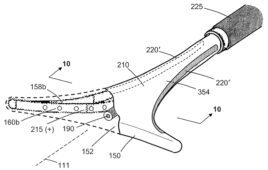Landmark U.S. Supreme Court decisions signal an effort to shoot down patent trolls, but one expert says small business could get caught in the crosshairs.

U.S. Supreme Court Building [Image by Daderot – Own work, Public Domain]
1. Powdered drinks case rewrites the patent venue rules
In TC Heartland v. Kraft Foods Group Brands, a venue case, the Supremes limited the ability of patent holders to sue in other states. Kraft sued TC Heartland in its incorporated state of Delaware over drink powder patents; a lower court blocked TC Heartland’s bid to move the case to its home base of Indiana. In May, the Supreme court reversed that decision, finding that the only place a defendant can be subject to a suit is their home court, a place where infringement occurred or where the defendant has a regular and established place of business.
“It actually upsets decades of precedent,” said Rich Sampson, a shareholder at Davis, Malm & D’Agostine. He said the news was welcome to some as it displaces the patent stronghold in the Eastern District of Texas.
Sampson said eastern Texas has seen “big business” in patent infringement suits and is a favored venue for patent trolls. The Heartland decision will shift patent cases to other parts of the country, including medtech clusters in Silicon Valley, Boston, Minnesota and to states where many companies incorporate, which, ironically, includes Delaware.
Although the ruling removes a known haven for patent trolls, Sampson said it doesn’t prevent patent trolling. Patent cases will be redistributed to predictable regions (e.g., Delaware) where many companies are incorporated and which “might” have a more defendant-friendly attitude, but that could be the extent of its effect on trolls.
That points to a more general problem with Supreme Court rulings, Sampson added.
“We should deal with this is a more nuanced manner [with legislation] instead of a blunt instrument,” he said.
Small firms, not patent trolls, could face the biggest obstacles in the aftermath. Larger companies have resources and don’t really have to worry about venue, Sampson explained.
“It might hurt small companies that would like to file suits in their home territories,” he said.
2. Printer ink cartridges and overseas pricing
The second ruling, in Impression Products v. Lexmark International, has greater implications for tech-based industries and will also influence many small businesses on both the manufacturing and consumer side.
China-based Lexmark makes ink cartridges, priced along two different models. In the U.S., it offered a discount incentive for its return program. But outside the U.S., prices were lower than even the discounted U.S. price; Lexmark wanted to prevent cartridges sold overseas from being re-sold in the U.S. and undercutting its own price.
The Supreme Court ruled that a product can’t be sold with fewer rights or a subset of ownership rights. In effect, the high court found, once an entity purchases an ink cartridge, they can do what they want with it.
“If you sell it, you sell it with the full bundle of property rights,” Sampson explained. “It’s going to simplify things for purchasers to a large extent.”
The ruling will make it a little more challenging for small companies that sell overseas at lower prices – a model that many medical device companies adopt to get medtech to patients with less purchasing power.
For the most part, however, medical device goods can be produced for different markets with lesser feature sets. Sampson also noted that medical companies might want to consider licensing as opposed to outright sales.
The upside is that consumers have less complexity to deal with when purchasing from abroad, he added.
“They don’t have to be so concerned about the provenance of what they’re buying and being pulled into an infringement situation,” Sampson said.
[Want to stay more on top of MDO content? Subscribe to our weekly e-newsletter.]






